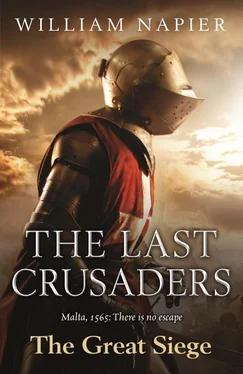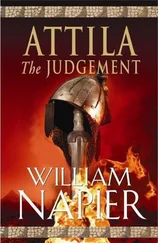William Napier - The Great Siege
Здесь есть возможность читать онлайн «William Napier - The Great Siege» весь текст электронной книги совершенно бесплатно (целиком полную версию без сокращений). В некоторых случаях можно слушать аудио, скачать через торрент в формате fb2 и присутствует краткое содержание. Жанр: Исторические приключения, на английском языке. Описание произведения, (предисловие) а так же отзывы посетителей доступны на портале библиотеки ЛибКат.
- Название:The Great Siege
- Автор:
- Жанр:
- Год:неизвестен
- ISBN:нет данных
- Рейтинг книги:5 / 5. Голосов: 1
-
Избранное:Добавить в избранное
- Отзывы:
-
Ваша оценка:
- 100
- 1
- 2
- 3
- 4
- 5
The Great Siege: краткое содержание, описание и аннотация
Предлагаем к чтению аннотацию, описание, краткое содержание или предисловие (зависит от того, что написал сам автор книги «The Great Siege»). Если вы не нашли необходимую информацию о книге — напишите в комментариях, мы постараемся отыскать её.
The Great Siege — читать онлайн бесплатно полную книгу (весь текст) целиком
Ниже представлен текст книги, разбитый по страницам. Система сохранения места последней прочитанной страницы, позволяет с удобством читать онлайн бесплатно книгу «The Great Siege», без необходимости каждый раз заново искать на чём Вы остановились. Поставьте закладку, и сможете в любой момент перейти на страницу, на которой закончили чтение.
Интервал:
Закладка:
He felt cold. That was impossible. The sun was already burning off the mist, the July Mediterranean sun. Or was it August now? Soon it would be as hot as a blacksmith’s forge. He straightened his helmet. His face ran with sweat and still he shivered. He knew once the fighting started, he would change. He would become a different person, and fear would give way to fury. He wished Stanley and Smith were here, but he had volunteered. They were needed on Birgu’s walls. The sound of the drums came nearer, and through the thinning fog, he could now make out the dark, drifting shadows of the approaching galleys, hear the soft dip and drip of the oars.
Then the relentless barrage of guns started up again from the heights of Santa Margherita behind them, hitting beleaguered Birgu, and Nicholas saw the very surface of the water in the harbour tremble at that monstrous sound, like water in a cup. The guns drowned out the soft noise of the approaching galleys, and the barrage continued as the deafening background music throughout the chaotic fighting of the next hour.
The Turkish galleys surged forward at ramming speed, appearing suddenly very stark and clear out of the last veils of mist, and crashed hard into the spiked palisade amid a furious exchange of gunfire from the galleys and the walls behind. Yet the vessels could not crash through the barrier, and were now dangerously held and exposed, when their whole plan had depended upon being able to slip in fast, scale the walls and attack.
The defenders rose up from their cover and those that had arquebuses fired a murderous close-range volley, and then all gave a cry and waded out to the palisade.
The Turks saw immediately that they must attack with all force or back-row in dismal retreat, and with their characteristic bravery and zeal, they attacked. Janizaries stood and stripped almost naked, realizing their fine robes would only be a hindrance, while light-clad marines and grinning Barbary corsairs, well used to such fighting, plunged off the sides of the galleys and swam up to seize hold of the palisade, trying to haul themselves up and over. But the defenders were already out there, the palisade their defensive wall, to which they clung like monkeys in a tree. Guns were useless in the watery, close-packed mêlée. It was sodden and bloody fighting, hatchet and club, dagger and sword.
Some Turks tried to swim around the palisade underwater, but were clearly visible from the walls of St Michel above, and shot in the back as they swam. They turned over, the air stopped in their lungs, and floated dead in spirals and coils of their own dilute blood.
Others came with hatchets and hacked busily at the ships’ ropes that held the rough palisade together. There came a single cannon shot from the Corradino heights beyond, perhaps trying to show support and hit Fort St Michel, but it misfired badly and hit one of the Turkish galleys. By double misfortune it ruptured the galley’s powder store, and the entire sixty-foot vessel reared up like a mule as its stern was blown apart like a black exploding star. Some men closest were deafened for life, staring around open-mouthed and dazed in the soot-laden air, treading water, until the splintered timbers began to rain down about them, some big enough to brain a man.
Nicholas squatted on a cross-bar of the palisade and clung left-handed to a well-roped stave, the sword of Bridier de la Gordcamp in his right. He saw a shaven-headed corsair, a gold ring in his nose, make for the ropes with a hatchet, and swung ape-like down on top of him, driving the sword through the back of his neck. The fellow turned in the water, even as he was dying, and struck out with the hatchet. Nicholas blocked it with his left arm and fell into the water beside him. He came up spluttering and the fellow was dead, his hatchet turning and sinking slowly to the bottom of the creek. Nicholas tried to haul himself back onto the parapet but a very fat Turk, as at home in the water as a whale, dragged at his legs and tried to drown him. He revolved underwater, refusing to panic, sword still in his hand, and drove it long into the Turk’s broad belly, a white bloodless mound seen underwater. The gush of blood and matter was horrendous, and Nicholas erupted out of the water gagging and spitting, hurriedly clambering back onto the palisade, shaking with disgust. The slaughtered Turk floated just below him, obscenely ripped, eyes open.
All along the length of the palisade it was the same grim tale of stabbing, hacking, splashing, floundering, screaming, drowning, the once crystal-clear blue water now pink and foaming, the galleys crowded and bumping helplessly behind. The Turkish attack on Senglea had stalled.
In his pavilion, Mustafa heard of Mezquita’s cavalry sortie and of the palisade and the stalled attack on Senglea in almost the same instant. Only moments later, another obsequious and trembling messenger came to tell him that one of the four biggest basilisks on Margherita had exploded, killing the entire gun team of master and eighteen men. Evidently it had been damaged by the Christians, but the master had not realised, nor seen the damage before reloading and firing.
Mustafa’s mouth worked furiously beneath his moustache. The days went by, the guns roared on, from the heights of Sciberras and Corradino lookouts reported that Birgu appeared to have been half demolished already. And still the Christians fought back unrelentingly, with one trick and ruse after another. There was even some roving regiment of boy slingers working on the walls of the town. In the name of Shaitan and all his devils.
In his dreams now, Mustafa saw himself receiving from the Sublime Porte the silent but eloquent gift of the Black Kaftan. The Sultan’s way of saying that he was relieved of his command, and must return immediately to Stamboul, where worse might await him.
‘Ready the Janizaries for the frontal assault,’ he snapped.
‘Honoured Pasha,’ said Işak Agha, ‘the main walls of Birgu, though ruptured and part-fallen, still present a formidable obstacle. The townspeople within must be helping, they rebuild them all the time, as fast as we-’
‘Do not insult me with your objections. Ready them. What of the mining engineers?’
‘They dig through solid rock. It is slow. They work day and night.’
‘Tell them to work harder. Tell them the walls of Birgu must fall soon.’
A curved Ottoman horn sounded across the waters before Senglea, and some of the attackers fell back and swam to the galleys, leaving the left-hand section of the palisade unmanned. The defenders were barely aware of what happened or why, as they moved along to help their struggling comrades further down, where the attack still came on thick and fast. They fought desperately, vastly outnumbered but with the single advantage of defence, holding their position with bitter determination, clinging exhausted and soaked to sodden timbers, eyes half blinded with sun and salt and sweat, flesh turning white and ridged in the water. Wave after wave of corsairs continued to come at them.
Then bow guns roared from the galleys not fifty yards off, a dozen guns in grim unison, all aimed at that unmanned section, some of them so skilfully levelled that their shots were perfect tiro di ficco , the Portuguese speciality denoting a ball that bounced shallow over the water and hit the hull of a boat low and hard, with devastating effect. Now it did the same to the wooden palisade. It was a cunningly judged manoeuvre. Iron balls passed over the water faster than the eye could see, left a single slash of white foam across the surface, and then the hastily improvised spars and staves of the barricade were smashed in pieces, flying into the air, a hail of splinters, long timbers wheeling and turning and falling, the defence in ruins.
Читать дальшеИнтервал:
Закладка:
Похожие книги на «The Great Siege»
Представляем Вашему вниманию похожие книги на «The Great Siege» списком для выбора. Мы отобрали схожую по названию и смыслу литературу в надежде предоставить читателям больше вариантов отыскать новые, интересные, ещё непрочитанные произведения.
Обсуждение, отзывы о книге «The Great Siege» и просто собственные мнения читателей. Оставьте ваши комментарии, напишите, что Вы думаете о произведении, его смысле или главных героях. Укажите что конкретно понравилось, а что нет, и почему Вы так считаете.












